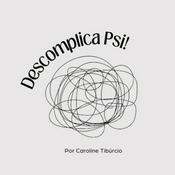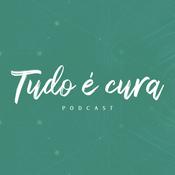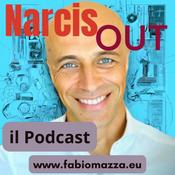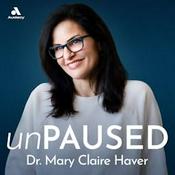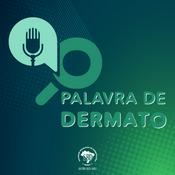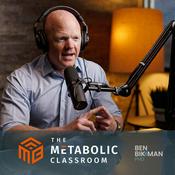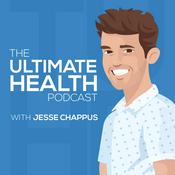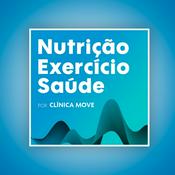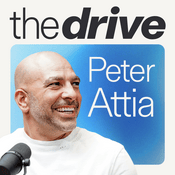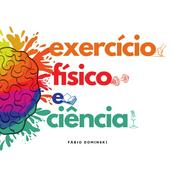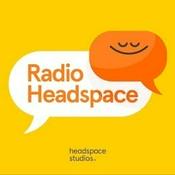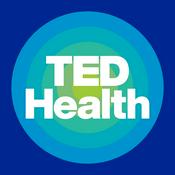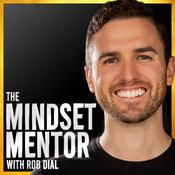109 episódios
#109 How To Boost NAD Levels To Fight Inflammation, Improve Recovery, and Slow Aging | Dr. Charles Brenner
09/2/2026 | 1h 59minGet access to more than 200 episodes of my premium podcast (The Aliquot) when you sign up as a FoundMyFitness Premium Member
Many symptoms attributed to aging are also consistent with chronic inflammatory stress and impaired NAD metabolism. Dr. Charles Brenner explains the mechanisms, the human data, and what interventions actually move the needle. He also cuts through the crowded world of NAD boosters, including oral NAD pills, NMN, NR, and NAD IV drips, clarifying what actually raises NAD in humans and what emerging research suggests about NR for lowering inflammation and improving recovery.
Timestamps:
(00:00) Introduction
(05:36) Why disease states disrupt NAD levels
(10:20) How coronavirus infection impacts NAD levels
(13:34) Can diet and supplements artificially inflate NAD levels?
(15:27) Why blood NAD might not show the full picture
(16:59) How obesity and insulin resistance drain NAD resources
(19:40) Does poor sleep disrupt NAD levels?
(20:32) The anti-inflammatory effects of nicotinamide riboside (NR)
(25:17) Can a single lifestyle change restore NAD?
(28:01) Cognitive benefits of NAD precursors
(31:37) Should you measure your NAD levels?
(34:37) Does exercise boost NAD—and if so, which type?
(36:39) Can NAD precursors speed exercise recovery?
(39:14) Is acute sleep loss enough to lower NAD?
(40:46) Does NR supplementation during pregnancy benefit offspring?
(45:21) Safety of nicotinamide riboside during pregnancy
(47:27) Could NR supplementation support fertility?
(48:37) Shift work and jet lag—can NAD precursors help?
(51:19) Morning or night—when should you take NR?
(54:20) NAD supplements vs. precursors—what actually boosts NAD?
(58:07) NAD IV drips—real benefits or just hype?
(59:15) Oral vs. IV nicotinamide riboside—what's more effective?
(1:00:44) Do oral NAD supplements genuinely raise NAD levels?
(1:02:37) NMN vs. NR—does being 'one step closer' really matter?
(1:05:44) Does the gut microbiome influence NAD production?
(1:08:22) Could NR supplementation enhance immune function?
(1:11:41) Can NR supplementation improve peripheral artery disease?
(1:16:05) Can NR realistically reduce liver fat?
(1:21:12) Does NR supplementation give athletes a recovery edge?
(1:22:57) What's a safe dosage for nicotinamide riboside?
(1:25:00) Resveratrol and pterostilbene—beneficial pairing or pointless stack?
(1:26:35) NAD precursor supplements—why sourcing matters
(1:28:48) Do NAD precursors increase cancer risk?
(1:34:34) Is NR worth supplementing for healthy individuals?
(1:38:56) From enzyme nerd to NAD pioneer (Brenner's origin story)
(1:43:26) Simplifying NAD's role in energy and repair
(1:50:13) Why DNA repair depends heavily on NAD
(1:52:03) The PARP/NAD-consumption mechanism
(1:54:42) NAD's role in gene regulation
(1:57:02) Why NAD shortages hit the brain hardest
Show notes are available by clicking here
Watch this episode on YouTube- Get access to more than 200 episodes of my premium podcast (The Aliquot) when you sign up as a FoundMyFitness Premium Member
Download my "How to Train According to the Experts" guide
One minute of vigorous exercise may be worth up to ten minutes of "moderate" cardio for extending lifespan and preventing chronic disease. In this Journal Club episode, Rhonda Patrick, PhD and endurance athlete Brady Holmer dissect a new Nature Communications study of more than 70,000 adults showing that vigorous intensity is roughly 4–10x more potent than moderate activity for reducing all-cause mortality, cardiovascular events, type 2 diabetes, and cancer outcomes—far beyond the long-standing 1:2 rule embedded in global exercise guidelines.
Timestamps:
(00:00) Introduction
(07:01) What exactly is the 1:2 rule for exercise intensity?
(08:18) Calorie burn vs. longevity—origins of the 1:2 rule
(11:15) What counts as 'vigorous' exercise, really?
(13:35) Where the exercise guidelines fall short
(14:19) Can your wearable predict disease risk years in advance?
(20:11) Is vigorous activity easier to achieve than people think?
(22:47) How researchers avoided the 'healthy user bias'
(23:59) Health equivalence ratio—a better way to measure exercise benefits?
(25:45) Is vigorous exercise truly 4–10x more effective?
(29:55) Can one vigorous minute match an hour of gentle walking?
(32:02) Why vigorous activity—not gentle—offers dose-dependent benefits
(33:50) Is vigorous exercise 5x better at preventing heart attacks & strokes?
(34:24) Why vigorous activity stands out for cancer prevention
(34:59) Does zone 2 qualify as vigorous exercise?
(36:11) Dose-response comparison—vigorous vs. moderate vs. light activity
(37:22) Is vigorous exercise the secret to younger arteries?
(43:15) Why aging hearts need intensity
(46:09) Can vigorous exercise halt your VO₂ max decline?
(47:26) Why moderate exercise alone might not improve VO₂ max
(49:21) Is vigorous exercise 10x more powerful at preventing diabetes?
(55:48) Mitochondrial biogenesis—why intensity is essential
(58:40) Can you directly measure mitochondrial health?
(1:00:57) Does vigorous exercise kill circulating tumor cells?
(1:07:15) Why vigorous intensity triggers beneficial hormone changes
(1:08:05) Can vigorous activity protect older adults from falls?
(1:12:36) Does vigorous exercise combat inflammation?
(1:14:29) Is high-intensity training the key to a younger brain?
(1:16:01) Is vigorous exercise more powerful than we realized?
(1:17:50) Can the benefits of vigorous exercise fit into a pill?
(1:19:08) How small doses of intensity might extend your lifespan
(1:23:15) Do short bursts of vigorous movement match full workouts?
(1:27:26) Why your wearable might undervalue short vigorous bouts
(1:30:06) Can planned micro-workouts replace traditional gym sessions?
(1:35:10) Why exercise guidelines urgently need updating
(1:46:35) Does light activity still offer real benefits?
(1:49:04) Is vigorous exercise safe for older adults?
(1:53:28) Are high-intensity workouts detrimental to female hormones?
(1:58:02) Safe vigorous exercise options—even with chronic illness
(1:59:05) The 80/20 rule for balancing intensity and recovery
(2:01:30) Inside Brady's routine—how much vigorous exercise is optimal?
(2:05:17) Can vigorous activity boost kids' brainpower (and grades)?
(2:08:14) Are we significantly underestimating vigorous exercise benefits?
(2:10:03) Why chasing steps isn't the answer
Show notes are available by clicking here
Watch this episode on YouTube - Get access to more than 70 Ask Me Anything episodes with Dr. Rhonda Patrick when you sign up as a FoundMyFitness Premium Member
Chronic insomnia and untreated sleep apnea profoundly accelerate cognitive decline, impair performance, and diminish resilience. In this episode, Dr. Michael Grandner outlines practical, scientifically validated interventions, including CBT-I and stimulus control strategies, to retrain your body for consistently restorative sleep. He provides critical insights into detecting hidden sleep apnea and explains how precise timing of morning light, caffeine, and supplements like melatonin can dramatically enhance sleep quality and daytime performance. Dr. Grandner also shares actionable tips for falling asleep faster, managing nighttime awakenings, and provides an honest look at the accuracy and pitfalls of sleep trackers.
Timestamps:
(00:00) Introduction
(04:45) Poor sleep vs. insomnia—how can you tell?
(07:11) Does stressing about sleep make insomnia worse?
(13:41) CBT-I's real target—wakefulness, not sleepiness
(16:11) Why your bed should be reserved strictly for sleep
(20:23) Can trying too hard to sleep backfire?
(21:38) Scrolling yourself awake? Try standing instead
(24:59) What should you do if you can't fall back asleep?
(27:51) Why effort keeps you awake
(29:30) Sleep restriction therapy—worst name, best solution?
(32:10) Can you train yourself to fall asleep faster?
(34:52) Why bedtime cliffhangers sabotage sleep
(36:32) Sedatives vs. CBT-I—which beats insomnia better?
(40:45) Insomnia by the numbers—is it affecting you?
(42:06) Why sleep apnea is shockingly common (and often unnoticed)
(45:44) Is nighttime waking a hidden sign of sleep apnea?
(51:50) Are at-home sleep apnea tests reliable?
(53:22) Allergies vs. sleeping position—what causes sleep apnea?
(56:05) What actually happens during REM and deep sleep?
(1:04:33) Are dreams your brain's way of decoding life?
(1:08:50) How apnea destroys sleep architecture
(1:10:20) Does untreated sleep apnea raise Alzheimer's risk?
(1:13:19) How poor sleep disrupts attention and memory
(1:16:36) Effective CPAP alternatives
(1:20:39) Mouth taping—sleep hack or hype?
(1:22:42) Measuring sleep apnea treatment success
(1:24:45) Advanced sleep hygiene for chaotic schedules
(1:28:13) Do blue-blocking glasses actually enhance sleep?
(1:28:58) Why morning light is key
(1:33:45) Should you delay your morning cup of coffee?
(1:37:43) Why consistent mornings are crucial—even if bedtime isn't
(1:41:14) Are you losing sleep to "revenge bedtime procrastination"?
(1:46:01) Why 5 mg of melatonin might be too much
(1:53:38) Do melatonin supplements contain more than advertised?
(1:56:31) Can melatonin boost your immune system?
(1:57:26) Debunking melatonin supplement safety myths
(2:01:48) Do magnesium, glycine, and L-theanine actually help sleep?
(2:04:49) Why glutamine and B12 might keep you awake
(2:06:21) THC and REM suppression—the hidden costs
(2:12:48) Does CBD genuinely improve sleep quality?
(2:15:21) Alcohol as a sleep aid—more harm than good?
(2:18:18) How late is too late for caffeine?
(2:22:31) Why staying up late leads to unhealthy eating
(2:27:21) Is shift work more harmful than smoking?
(2:31:04) What's the ideal power nap length?
(2:32:50) Strategic napping advice for shift workers
(2:34:58) Optimal caffeine timing for shift workers
(2:35:31) The fastest way to adjust to a new time zone
(2:41:02) How exercise and light help beat jet lag
(2:43:34) Can sleep trackers accurately detect wakefulness?
(2:47:09) Sleep stage tracking—useful data or misleading?
(2:51:36) Should you trust your wearable's sleep score?
(2:55:54) How to use sleep tracker data effectively
(3:01:08) Evening habits elevating your heart rate
(3:03:11) Troubleshooting insufficient REM and deep sleep
(3:06:07) Is your sleep tracker doing more harm than good?
(3:10:25) Does better sleep boost cognitive resilience?
(3:12:54) Why school start times clash with teen biology
(3:15:32) Shifting your circadian rhythm with light and exercise
(3:17:38) Can 15 minutes extra sleep boost athletic performance?
(3:19:48) Is "sleep banking" a competitive game-changer?
(3:22:15) Does poor sleep predict injury risk?
(3:27:12) Why caffeine isn't enough to overcome poor sleep
(3:28:50) Do eye masks and earplugs significantly improve sleep?
(3:30:27) Proven techniques to fall asleep faster
(3:32:24) Does reading before bed shorten sleep onset?
(3:33:14) Can't fall back asleep? Try this
(3:34:16) One proven strategy for deeper sleep
(3:35:40) Reducing nighttime urination awakenings
(3:37:23) Is sharing a bed disrupting your sleep?
(3:39:02) How to tell if you're truly sleeping enough
(3:40:40) Do you really need 8 hours of sleep?
(3:41:55) Adjusting your routine to your chronotype
Show notes, transcript, and summary are available by clicking here
Watch this episode on YouTube - Get access to more than 70 Ask Me Anything episodes with Dr. Rhonda Patrick when you sign up as a FoundMyFitness Premium Member
When testosterone runs low, libido isn't the only casualty—muscle mass drops, fat accumulates, insulin resistance rises, and motivation declines. In this episode, Derek from More Plates More Dates highlights common pitfalls that suppress testosterone and evaluates popular testosterone-boosting supplements like Tongkat Ali, boron, and ashwagandha, clarifying what's evidence-based versus overhyped. He also details practical strategies for testosterone replacement therapy (TRT), covering optimal delivery methods, benefits, risks, fertility implications, and key biomarkers to monitor.
Timestamps:
(00:00) Introduction
(04:50) Why is testosterone essential for men?
(07:11) The role of testosterone in women's health
(08:53) Does higher testosterone shorten lifespan?
(12:12) What the castrati reveal about testosterone and longevity
(15:07) Free vs. total testosterone—what's the difference?
(18:42) Best practices for measuring and interpreting testosterone levels
(21:29) Reference ranges or symptoms—which matters more?
(24:50) When is high testosterone a red flag?
(26:32) What LH and FSH reveal about testosterone production
(31:11) Could high SHBG levels be limiting your testosterone?
(35:02) Why SHBG increases with age—and how diet and lifestyle accelerate it
(39:45) Key symptoms of low testosterone in men
(42:46) Is alcohol sabotaging your testosterone levels?
(45:39) Why low-fat and low-carb diets might lower testosterone
(46:18) Common micronutrient mistakes hurting hormone levels
(48:12) How excess body fat impacts testosterone
(51:39) When endurance training goes too far
(56:02) Are endocrine disruptors truly harming male hormones?
(58:42) Debunking myths about declining testosterone in men
(1:01:32) Why dietary fat is essential for hormone health
(1:03:55) Is a ketogenic diet bad for testosterone?
(1:05:10) Which type of exercise boosts testosterone most?
(1:07:16) Do vitamin D, zinc, and magnesium actually help?
(1:11:36) Does boron significantly raise free testosterone?
(1:12:45) Ashwagandha's true potential for testosterone enhancement
(1:17:00) Is Tongkat Ali the best herbal testosterone booster?
(1:20:51) Tongkat Ali or boron—which is superior?
(1:22:20) Shilajit, Tribulus, Fenugreek—do they actually work?
(1:23:33) The four best supplements to raise testosterone levels
(1:25:17) Dutch test vs. blood test—which is better for cortisol?
(1:26:32) When should you consider testosterone replacement therapy (TRT)?
(1:34:23) What realistic benefits can TRT provide?
(1:37:34) Does TRT raise heart disease and erythrocytosis risk?
(1:47:23) Creams vs. injections
(1:48:47) Does TRT increase prostate cancer risk?
(1:51:01) Hair loss, acne, sleep apnea—what are TRT's real side effects?
(1:53:41) The rollercoaster effect of testosterone injections
(1:56:15) Could low testosterone be riskier than TRT?
(1:59:38) Choosing the right TRT delivery method
(2:06:16) Do smaller, more frequent injections reduce risks?
(2:08:12) Can you maintain fertility while on TRT?
(2:16:12) Why TRT quickly shrinks testicles
(2:17:40) Key biomarkers you must track on TRT
(2:26:57) Testosterone therapy for women—symptoms, ranges, and risks
(2:36:49) Can DHEA supplements safely raise testosterone in women?
(2:39:47) What actually causes hair loss?
(2:46:00) Does your maternal grandfather determine your hairline?
(2:46:48) Why stopping hair loss means accepting risks
(2:55:54) How effective are ketoconazole, minoxidil, and microneedling?
(2:58:55) Topical vs. oral minoxidil—how do side effects compare?
(3:02:00) Is microneedling effective without minoxidil?
(3:04:51) Do finasteride and dutasteride alter brain chemistry?
(3:06:03) Finasteride and the nocebo effect—are side effects imagined?
(3:07:37) Does minoxidil delay baldness or just mask it?
(3:09:06) Can dutasteride extend your lifespan?
Show notes, transcript, and summary are available by clicking here
Watch this episode on YouTube #105 Exogenous ketones, my coffee protocol, and supplements for blood sugar regulation (Premium Member Q&A July 2025)
05/8/2025 | 33minBecome a FoundMyFitness Premium Member to access the full episode
In this special episode, you'll get an exclusive 30-minute preview of my latest Ask Me Anything (AMA) session, normally reserved for FoundMyFitness Premium Members. Each month, Premium Members join me live to receive direct answers to their most pressing questions on nutrition, supplements, longevity, sleep, fitness—no topic is off-limits. In today's sneak peek, you'll hear why I've started taking exogenous ketones, details about my personal coffee routine (from bean choices to brewing methods), optimal supplement dosages (including ubiquinol, berberine, and vitamin K2), and whether some popular greens powders might pose risks due to heavy metals.
Learn more here about becoming a FoundMyFitness Premium Member for as little as $15 per month. After signing up, you'll also unlock the full 90-minute session, along with more than 100 hours of additional AMA content. Your membership directly supports our mission to deliver trustworthy, unbiased, science-backed health information that's entirely ad-free and free from commercial bias. Every Premium Member helps us stay focused solely on providing you with the highest-quality insights grounded in rigorous science.
Timestamps:
(00:00) Introduction
(02:44) Why I started taking exogenous ketones
(04:02) What ketone supplement brand am I using?
(07:16) Can ketones help reduce performance anxiety?
(08:50) My daily coffee routine (beans, brewing, and tips)
(11:31) Should you worry about diterpenes in coffee?
(12:56) Which coffee bean brand do I trust most?
(14:04) Does coffee cause dehydration or block mineral absorption?
(15:46) Is drinking coffee on an empty stomach harmful?
(16:01) Does dairy reduce coffee's polyphenol benefits?
(17:53) Should slow caffeine metabolizers avoid coffee?
(18:52) Can coffee's vasoconstriction affect brain blood flow?
(19:18) Do coffee pods release harmful microplastics?
(20:09) The ketone meter I've relied on for 10 years
(20:35) Does quitting caffeine lower resting heart rate?
(20:41) What's the best plastic-free coffee maker?
(21:13) Ideal dosing for ubiquinol, berberine, and alpha-lipoic acid
(22:43) Which supplements best support fertility and egg quality?
(23:49) Why (and how much) myo-inositol did I take?
(24:08) Am I still taking benfotiamine, collagen, lutein, and zeaxanthin?
(24:34) Creatine vs. methylated B vitamins for homocysteine control
(25:56) Which vitamin K2 supplement (and dosage) do I use?
(26:17) Are greens powders (like moringa) high in heavy metals?
(27:16) Which choline supplement won't raise TMAO?
(30:31) Which Thorne supplements do I personally use?
(30:44) How much CoQ10 is needed if you're not targeting fertility?
Mais podcasts de Saúde e fitness
Podcasts em tendência em Saúde e fitness
Sobre FoundMyFitness
A podcast about health, science, nutrition, aging, and fitness.
Site de podcastOuça FoundMyFitness, Mentemania e muitos outros podcasts de todo o mundo com o aplicativo o radio.net
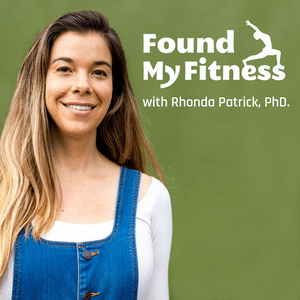
Obtenha o aplicativo gratuito radio.net
- Guardar rádios e podcasts favoritos
- Transmissão via Wi-Fi ou Bluetooth
- Carplay & Android Audo compatìvel
- E ainda mais funções
Obtenha o aplicativo gratuito radio.net
- Guardar rádios e podcasts favoritos
- Transmissão via Wi-Fi ou Bluetooth
- Carplay & Android Audo compatìvel
- E ainda mais funções


FoundMyFitness
Leia o código,
baixe o aplicativo,
ouça.
baixe o aplicativo,
ouça.













